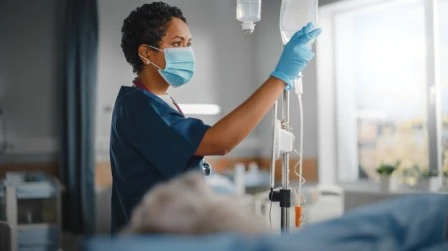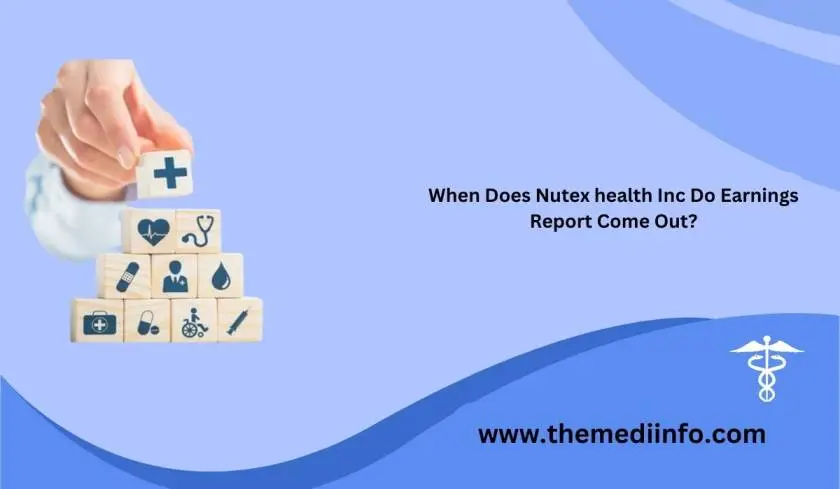
A large US trial compared the outcomes of treating appendicitis with antibiotics or appendectomy surgery.
The appendix is a small, thin, finger-like pouch that protrudes from the lower right side of the large intestine. The narrow opening to the appendix can get blocked by feces or a mixture of feces and mineral deposits called an “appendicolith”. This leads to inflammation of the appendix, or “appendicitis”, with symptoms including pain in the lower right abdomen, loss of appetite, nausea and vomiting, bloating, inability to pass gas, and fever. Left untreated, an inflamed appendix may rupture and cause widespread infection in the abdomen, or an abdominal abscess.
The standard treatment for appendicitis is surgical removal of the appendix, or “appendectomy”. An alternative of antibiotic therapy for appendicitis was first suggested over 60 years ago. However despite several clinical trials this approach is not widely used. A report in 2014 noted that more than 95% of US appendicitis patients underwent surgery. Recently, a large US trial compared the outcomes of treating appendicitis patients with antibiotics or appendectomy. The findings were reported in the New England Journal of Medicine.
CODA Trial compared antibiotic therapy vs surgery in appendicitis
The Comparison of Outcomes of antibiotic Drugs and Appendectomy (CODA) trial was conducted in 25 centers across 14 US states. Patients diagnosed in the emergency department with appendicitis who met the selection criteria were randomized either to have appendectomy surgery or antibiotic therapy (a 10-day course, starting with 24 hours of intravenous antibiotics, followed by oral treatment). The clinical outcomes and complications for patients were assessed at 30 days and 90 days. Outcomes for patients with and without appendicoliths were also compared.
A total of 1,552 adult patients were included in the trial. The outcomes for antibiotic therapy were not inferior to surgery at the 30 day assessment. Around half of the antibiotics group avoided initial hospitalization, but overall the time spent in hospital was similar between the two groups. In the antibiotics group, almost 3 in 10 patients had undergone appendectomy by 90 days, including 41% of those with appendicoliths and 25% or those without. Complications were more common in the antibiotics group than the surgery group (8.1 vs 3.5 per 100 participants). Patients with an appendicolith were at a higher risk of complications (20.2 vs 3.6 per 100 participants) than those without (3.7 vs 3.5 per 100 participants).
Antibiotic therapy could allow some appendicitis patients to avoid surgery
“In terms of overall health status, antibiotics were no worse than surgery and allowed most people to avoid an operation in the short term,” said Dr. David Talan, co-principal investigator, from the David Geffen School of Medicine, UCLA.
However, around 3 in 10 patients in the antibiotic group underwent surgery by 90 days, and this group had more return hospital visits after the initial treatment than the surgery group. Those with appendicoliths were at a higher risk of complications and requiring later surgery. On the other hand, 7 in 10 of the antibiotic therapy group avoided surgery, many were treated as outpatients and missed less time from work.
“There were advantages and disadvantages to each treatment, and patients will value these differently based on their unique characteristics, concerns, and perspectives,” said Dr. David Flum, the co-lead author of the study, from the University of Washington School of Medicine.
The investigators also noted that the study findings may be particularly relevant in the context of the COVID-19 pandemic, allowing patients and doctors consider the risks and benefits of each approach.
Written by Julie McShane, MA MB BS
References
1. The CODA Collabarative. A randomized trial comparing antibiotics with appendectomy for appendicitis. New Eng J Med 2020, Oct 5. DOI:10.1056/NEJMoa2014320.
2. University of Washington Health Sciences. Press Release 5 Oct 2020. Benefits, risk see with antibiotics-first for appendicitis. https://www.eurekalert.org/pub_releases/2020-10/uowh-brs100120.php
Image by Sasin Tipchai from Pixabay
Related Post
 18
18 Nov
Is There a Good Place to Stop Leveling Health Skyrim?
The blemish in Skyrim's evening out framework is by they way it grants capacity to the player, and capacity to the players resistance through unequivocal means. For instance, by work in abilities. Is there a good place to stop leveling health.
Read More 06
06 Nov
What Type of Cancer Did Morgan Spurlock Have?
Morgan Spurlock, the producer and previous CNN series have whose McDonald's narrative Super Size Me was selected for an Institute Grant, passed on from disease confusions Thursday, as indicated by his loved ones. What Type of Cancer Did Morgan Spurlock Have? The.
Read More 24
24 Oct
When Does Nutex health Inc Do Earnings Report Come Out?
When Does Nutex health Inc Do Earnings Report Come Out? Today announced that Nutex Health Inc., Nutex Health" or the "Company," a physician-led, integrated healthcare delivery system comprising of 21 state-of- the-art micro hospitals in 9 states and primary care-centric. The.
Read More 16
16 Sep
The Role of Lifestyle in Anti-Aging Skin Care Products
Looking for anti aging skin care products can feel like a hit-or-miss insight. With so many options, it can be hard to choose. These dermatologist tips can assist you with shopping with certainty. Has your skin been harmed or has it matured altogether.
Read More